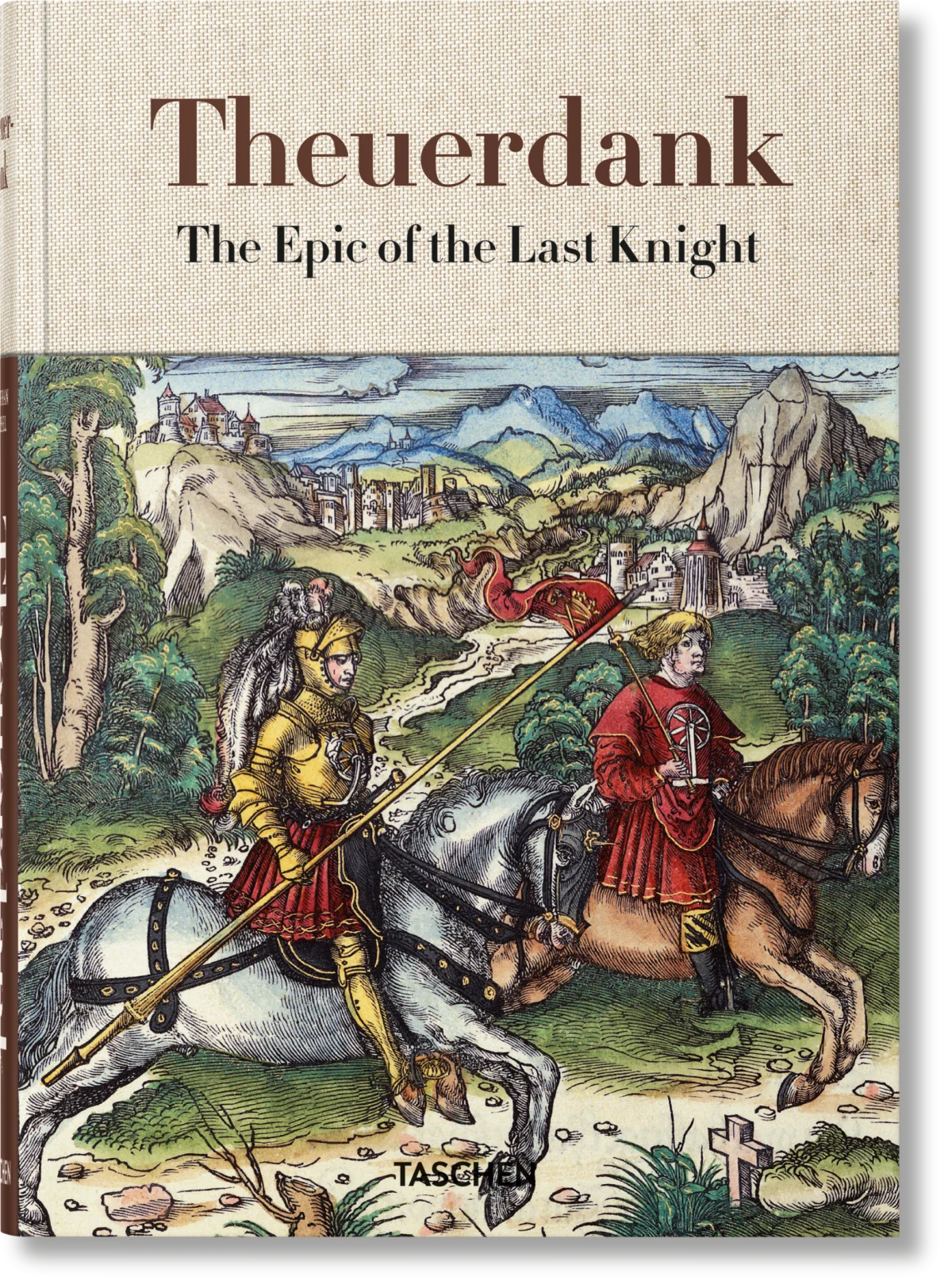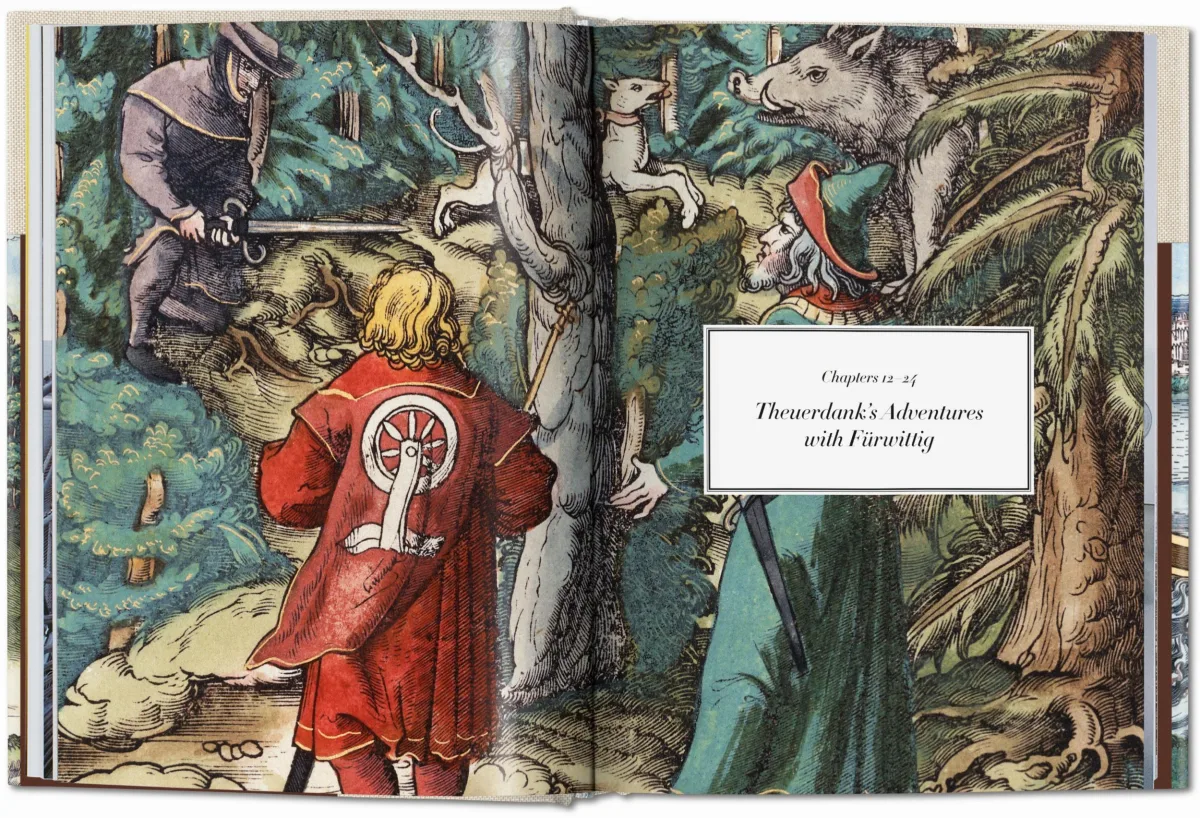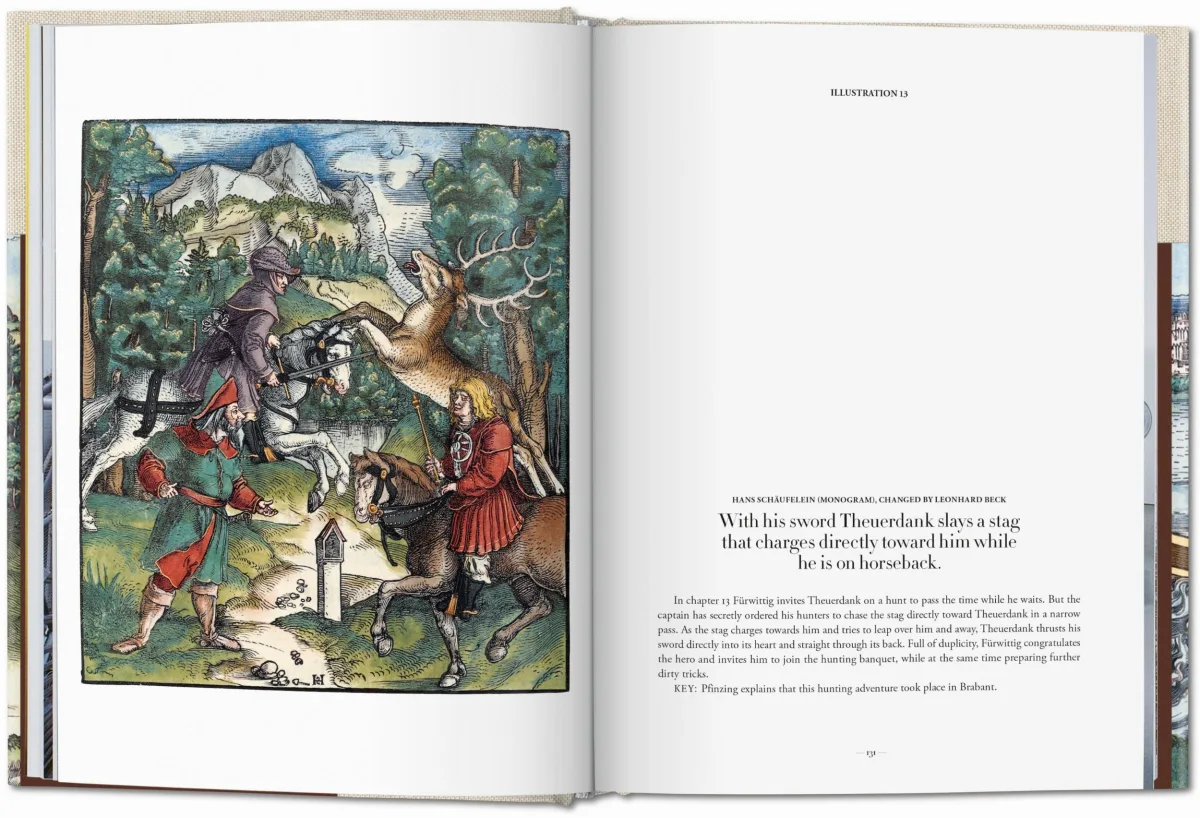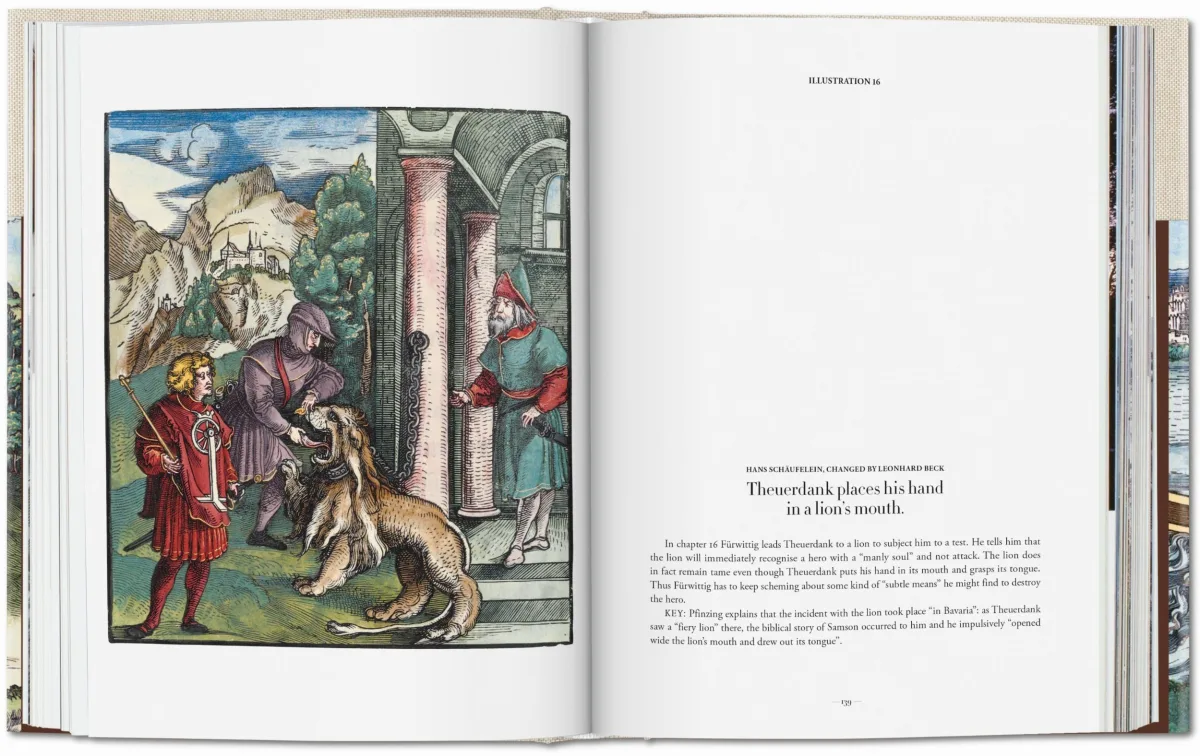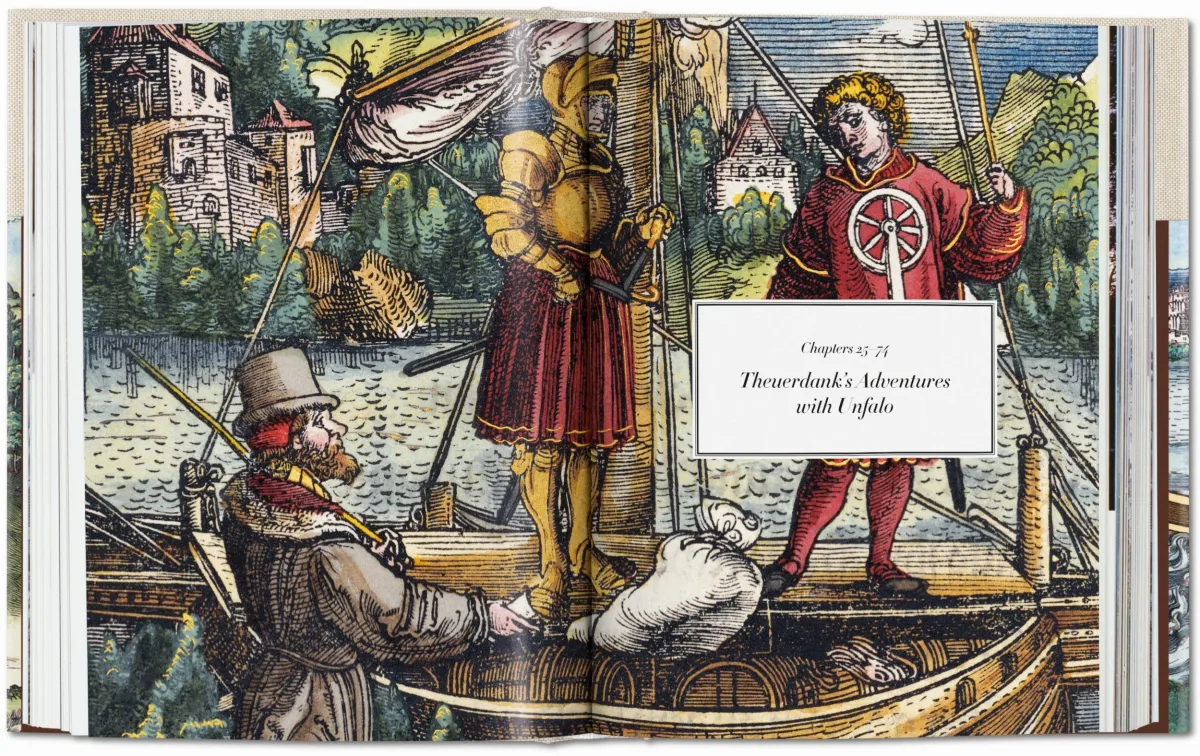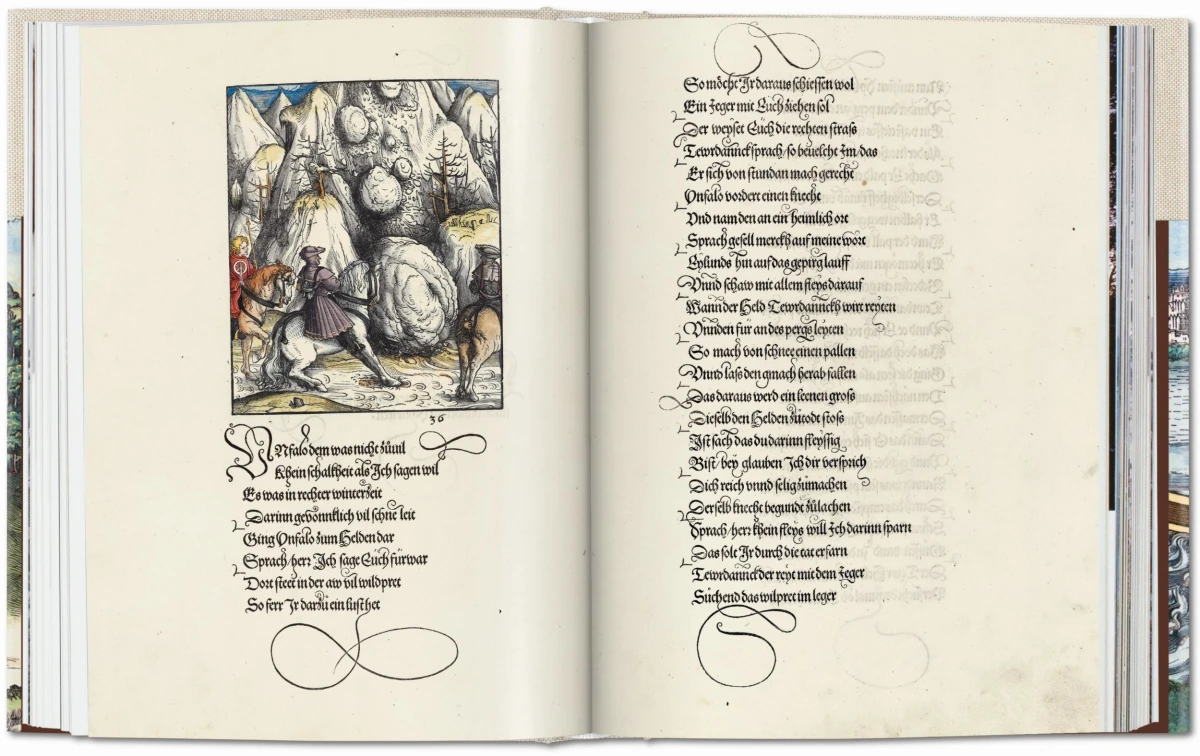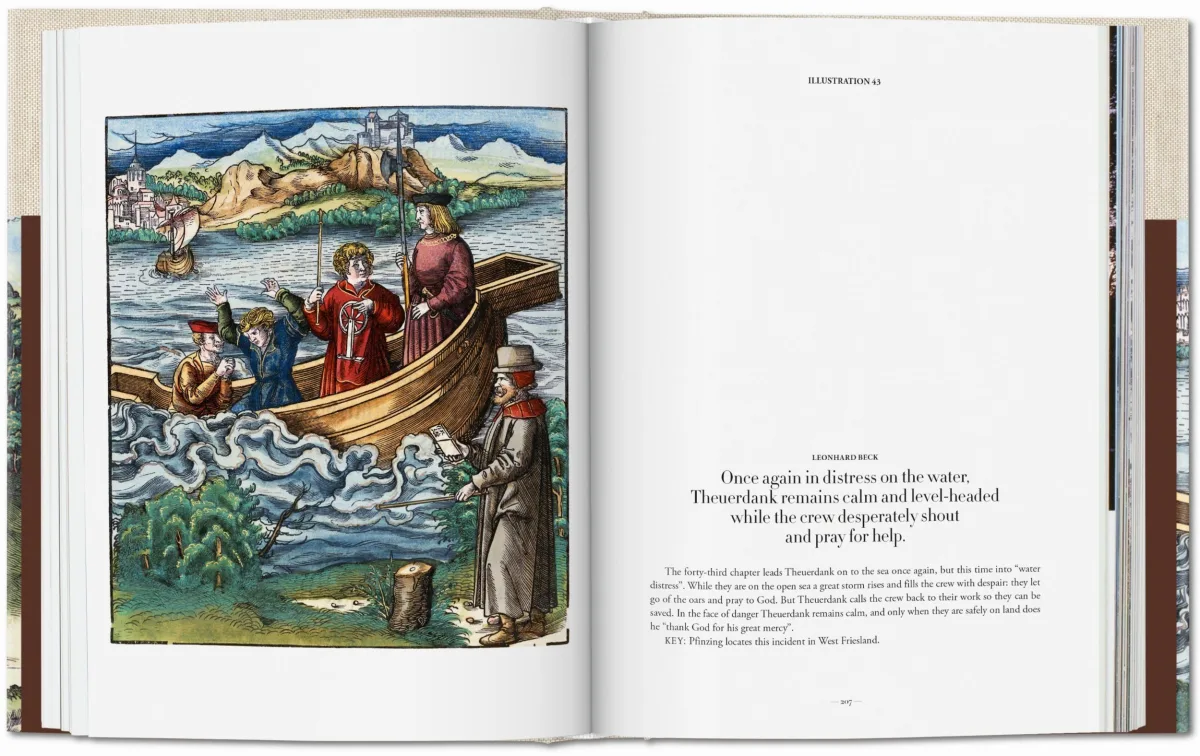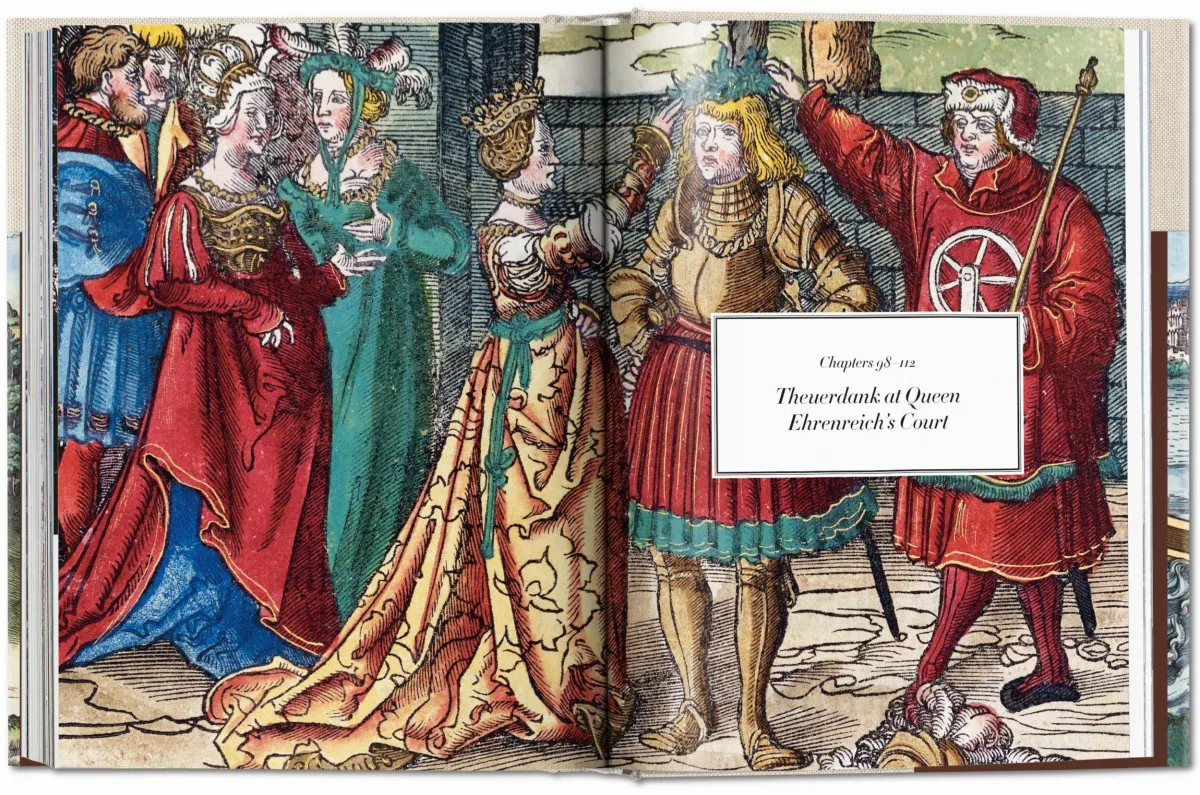1 / 8
Theuerdank. The Epic of the Last Knight
40Scopri l'ultima grande epopea in versi del Medioevo. Theuerdank segue la storia "reale", molto abbellita, dell'imperatore Massimiliano I, il primo sovrano dell'età moderna a utilizzare la stampa come mezzo di propaganda. Questa edizione riproduce un rarissimo originale, con tutte le 118 xilografie ornate d'oro, i saggi rivelatori, i fascicoli e una ricostruzione capitolo per capitolo dei racconti in lingua moderna.
Legato in lino, 6.7 x 9.4 in., 3.09 lb, 398 pagine

Theuerdank. The Epic of the Last Knight
40The Last Knight
The legendary tales of Emperor Maximilian, the first ruler to employ the new possibilities of book-printing
The amazing tales of the knight Theuerdank and his companion Ehrenhold constitute the last great epic verse of the late Middle Ages. The courageous knight’s journey to woo his future wife, Mary of Burgundy, and his triumph in battles and other perilous acts of bravery are the focus of this highly embellished “real-life” story of Emperor Maximilian I (1459–1519).
A king of Germany before becoming Holy Roman Emperor in 1508, Maximilian was a great patron of the arts, but also the first modern-age ruler to recognize its potential for propaganda. He commissioned a trilogy of luxurious illustrated books to immortalize his existence, among them Theuerdank—the only volume to be published during his lifetime, composed by Melchior Pfinzing, based on Maximilian’s rather fanciful draft.
The 118 ornate, gold-adorned woodcuts—one for each chapter—were made by Hans Burgkmair the Elder, Hans Schäufelein, and Leonhard Beck, while the typeface (known as the Theuerdank typeface and marked by striking “elephant trunks”) was especially designed for the book by the printing workshop of Hans Schönsperger the Elder.
This edition, inspired by an extremely rare hand-colored original from the Bayerische Staatsbibliothek, Munich, comes with an essay by Stephan Füssel (covering Maximilian’s life and work, as well as his role in the art of printing and use of printed materials) and selections from Melchior Pfinzing’s clavis, or “key,” which was included in the original to kindly point out to Maximilian’s contemporaries exactly what part of the tales were more fiction than fact.
The collection also showcases the famed “elephant trunks” typeface in double-spread fascimiles—true to the original down to every stain and smudge. A chapter-by-chapter retelling of the tales in modern vernacular sheds light on the narrative strategy and real events behind the allegories.
A king of Germany before becoming Holy Roman Emperor in 1508, Maximilian was a great patron of the arts, but also the first modern-age ruler to recognize its potential for propaganda. He commissioned a trilogy of luxurious illustrated books to immortalize his existence, among them Theuerdank—the only volume to be published during his lifetime, composed by Melchior Pfinzing, based on Maximilian’s rather fanciful draft.
The 118 ornate, gold-adorned woodcuts—one for each chapter—were made by Hans Burgkmair the Elder, Hans Schäufelein, and Leonhard Beck, while the typeface (known as the Theuerdank typeface and marked by striking “elephant trunks”) was especially designed for the book by the printing workshop of Hans Schönsperger the Elder.
This edition, inspired by an extremely rare hand-colored original from the Bayerische Staatsbibliothek, Munich, comes with an essay by Stephan Füssel (covering Maximilian’s life and work, as well as his role in the art of printing and use of printed materials) and selections from Melchior Pfinzing’s clavis, or “key,” which was included in the original to kindly point out to Maximilian’s contemporaries exactly what part of the tales were more fiction than fact.
The collection also showcases the famed “elephant trunks” typeface in double-spread fascimiles—true to the original down to every stain and smudge. A chapter-by-chapter retelling of the tales in modern vernacular sheds light on the narrative strategy and real events behind the allegories.
L'editore
Stephan Füssel is director of the Institute for Book Studies at the Johannes Gutenberg University in Mainz, and holder of the Gutenberg Chair at the same university. He has published prolifically on the early days of printing, the sale and publication of books between the 18th and 20th centuries, and the future of communications.
Theuerdank. The Epic of the Last Knight
Legato in lino, 17 x 24 cm, 1.40 kg, 398 pagineScarica qui le immagini del prodotto
4.8
Zeitreise ins Reich der Ritter
10 dicembre 2021
Schön gebundenes Buch mit vielen prächtigen Abbildungen aus einer abenteuerlichen, alten und faszinierenden Zeit.Mittelalter
3 novembre 2021
Eintauchen in die Gedankenwelt eines spätmittelalterlichen Herrschers. Für Historiker und Liebhaber mittelalterlicher Literatur sehr empfehlenswert.Theuerdank
29 ottobre 2021
A small format book but it made me surprised by its good quality in everything: cover, paper, reproductions. I think that in its category the book gives everything whats needed. I will keep on watching and waiting for new editions in this series too.Sehr interessantes Buch
27 ottobre 2021
Wie alle Bücher des Taschen Verlags ist auch dieses Buch sehr interessant und empfehlenswert.Last Knight first storytelling
27 ottobre 2021
Storytelling was not born yesterday but the day before. Beautiful images tell epic after epic. Sometimes the collective memory is just a beautiful fairy tale.
